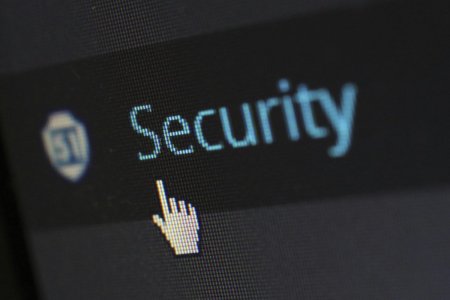Protect Your SSN Now: How to Safeguard Your Most Valuable Asset!
By
Aubrey Razon
- Replies 0
In an era where our personal information is as valuable as currency, the security of your Social Security number (SSN) has never been more critical. For Americans over 60, the SSN is a key that unlocks decades of hard work—retirement benefits, Medicare, and financial stability.
But with rising cyber threats, your SSN is at risk, and if it gets into the wrong hands, the fallout could be serious. Learn how to keep your sensitive information secure.
The recent breach at National Public Data, which compromised nearly 3 billion SSNs, and the David’s Bridal incident are stark reminders of our vulnerabilities.
Identity thieves can wreak havoc on your finances, from draining bank accounts to destroying credit scores. But fear not! The GrayVine is here to arm you with the knowledge and tools to fortify your SSN against these digital marauders.
To initiate a block, call the SSA at 1-800-772-1213. Remember, if you need to access your information later, you'll need to call and verify your identity to remove the block.
Contact each of the three major credit bureaus—Equifax, Experian, and TransUnion—to set up a freeze. It's free and doesn't affect your credit score. Regularly review your credit reports for suspicious activity and dispute any inaccuracies.
Despite all precautions, breaches can still occur. If you suspect your SSN has been compromised:
To add to all these tips and precautions, you can also learn how to secure and protect your passwords from scammers is also very important in today’s digital age. In a similar story, read up on the latest scam that fraudsters use to access your money and how to avoid it.
Remember, your SSN is more than just a number—it's a lifeline to your financial well-being. Let's commit to protecting it with the same vigilance we apply to our physical valuables. After all, in the digital world, information is the most precious asset we have.

Have you taken steps to protect your SSN? Do you have any tips or stories about safeguarding personal information? Share your stories and tips in the comments below.
But with rising cyber threats, your SSN is at risk, and if it gets into the wrong hands, the fallout could be serious. Learn how to keep your sensitive information secure.
The recent breach at National Public Data, which compromised nearly 3 billion SSNs, and the David’s Bridal incident are stark reminders of our vulnerabilities.
Identity thieves can wreak havoc on your finances, from draining bank accounts to destroying credit scores. But fear not! The GrayVine is here to arm you with the knowledge and tools to fortify your SSN against these digital marauders.
Safeguarding Your Social Security Number: A Step-by-Step Guide
1. Lock Down Your SSN
Begin by blocking electronic access to your SSN through the Social Security Administration (SSA). This prevents anyone from viewing or altering your personal information online or via automated phone services.To initiate a block, call the SSA at 1-800-772-1213. Remember, if you need to access your information later, you'll need to call and verify your identity to remove the block.
2. E-Verify Self Lock
E-Verify is used by employers to confirm employment eligibility. By creating a myE-Verify account, you can place a 'Self Lock' on your SSN, preventing its misuse for employment purposes. Keep in mind, you'll need to unlock it before you start a new job.3. Credit Freezes and Monitoring
While you can't freeze your SSN directly, you can freeze your credit reports. This stops scammers from opening new accounts in your name.Contact each of the three major credit bureaus—Equifax, Experian, and TransUnion—to set up a freeze. It's free and doesn't affect your credit score. Regularly review your credit reports for suspicious activity and dispute any inaccuracies.
4. My Social Security Account
Establish a my Social Security account to manage your details and prevent unauthorized accounts from being created in your name.5. Secure Your Social Security Card
Keep your card in a safe place and avoid carrying it with you. If lost, replace it promptly to prevent misuse.6. Be Stingy with Your SSN
Only share your SSN when absolutely necessary. If asked for it, inquire why it's needed, how it will be used, and the implications of not providing it. Be wary of unsolicited requests via calls, texts, or emails—they're likely scams.7. Identity Theft Protection Services
If you prefer a hands-off approach, consider subscribing to an identity theft protection service. They can monitor your credit and alert you to potential fraud.What to Do If Your SSN Is Compromised
Despite all precautions, breaches can still occur. If you suspect your SSN has been compromised:
- Freeze your credit reports immediately if you haven't already.
- Report identity theft to the Federal Trade Commission (FTC) at identitytheft.gov.
- Obtain an IRS Identity Protection PIN to secure your tax filings.
- Replace your Social Security card if it's lost or stolen.
To add to all these tips and precautions, you can also learn how to secure and protect your passwords from scammers is also very important in today’s digital age. In a similar story, read up on the latest scam that fraudsters use to access your money and how to avoid it.
Remember, your SSN is more than just a number—it's a lifeline to your financial well-being. Let's commit to protecting it with the same vigilance we apply to our physical valuables. After all, in the digital world, information is the most precious asset we have.
Key Takeaways
- Social Security numbers are becoming increasingly vulnerable to identity theft, with billions reportedly compromised in recent hacks.
- Individuals are advised to protect their SSN by blocking electronic access and using tools like E-Verify to prevent employment fraud.
- Other protective measures include freezing credit reports, monitoring for fraudulent activity, and keeping Social Security cards secure.
- If an SSN is compromised, immediate actions to take include freezing credit reports, reporting identity theft to the FTC, obtaining an IRS identity protection PIN, and replacing a lost or stolen Social Security card.
Have you taken steps to protect your SSN? Do you have any tips or stories about safeguarding personal information? Share your stories and tips in the comments below.







